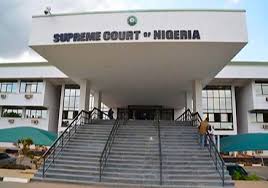
SIX TAKEAWAYS FROM SUPREME COURT RULING OB LOCAL GOVT FINANCING
The Supreme Court ruled on Thursday, July 11, that henceforth, the federal government must directly pay any funds allocated to the local governments in the federation to the local government areas managed by democratically elected officials.
In a landmark decision by Justice Emmanuel Agim, the Supreme Court ruled that it is unconstitutional for state governments to withhold and use the allocation meant for LGAs without transferring it to them, as required by Section 162(3) of the Constitution.
Here are some important lessons from the Supreme Court’s decision on LG allocations.
1. Unconstitutional Practice: The court ruled that it is illegal and unconstitutional for governors to continue receiving and confiscating monies allotted to LGAs, a practice that has persisted for more than two decades.
2. Constitutional Violation: The Supreme Court determined that this practice violates Section 162 of the 1999 Constitution, as amended.
3. Direct Payment of payments: The court ordered that payments intended for LGAs be transferred directly from the federation account to the LGAs rather than through the states.
4. Democratic Governance Mandate: The court highlighted that LGAs must be managed by democratically elected individuals, deeming governor-appointed caretaker committees to run LGA operations unlawful.
5. State Obligation: According to the verdict, the 36 states have an obligation to maintain democratic governance at the third tier of government.
6. Dismissal of Governors’ Objections: The court dismissed the preliminary objections made by state governors contesting the competence of the suit launched by the Federal Government to secure financial autonomy for the LGAs
 Premium News
Premium News